2016 Lexus GS 300h First Drive Review
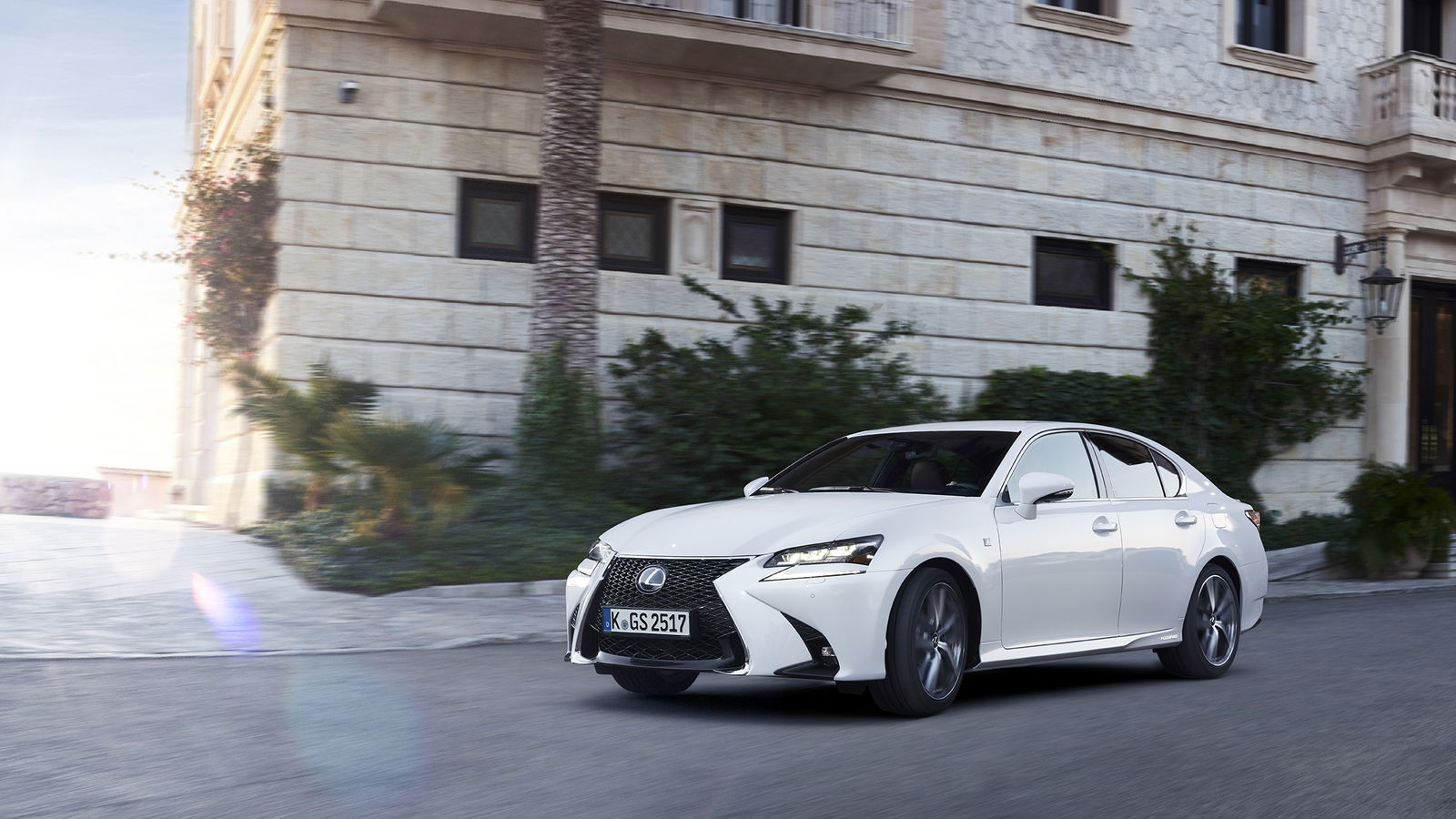
The luxury saloon market is dominated by the Germans. Audi, BMW and Mercedes have had the scene on lockdown for a while now, offering customers who need a lot of space, a lot of luxury and a lot of perceived wealth the perfect products. Lexus’ GS has been sat on the periphery, offering a solid alternative to the anti-badge snob brigade.
The problem faced by Lexus is that those pesky German manufacturers dominate the segment to such a degree that trying to beat them at their own game is pretty much pointless. Fortunately, that’s where Lexus’ exciting new design language comes in, offering a genuinely different-looking alternative. The question is, does the new GS have the substance to back up its bold aesthetic?
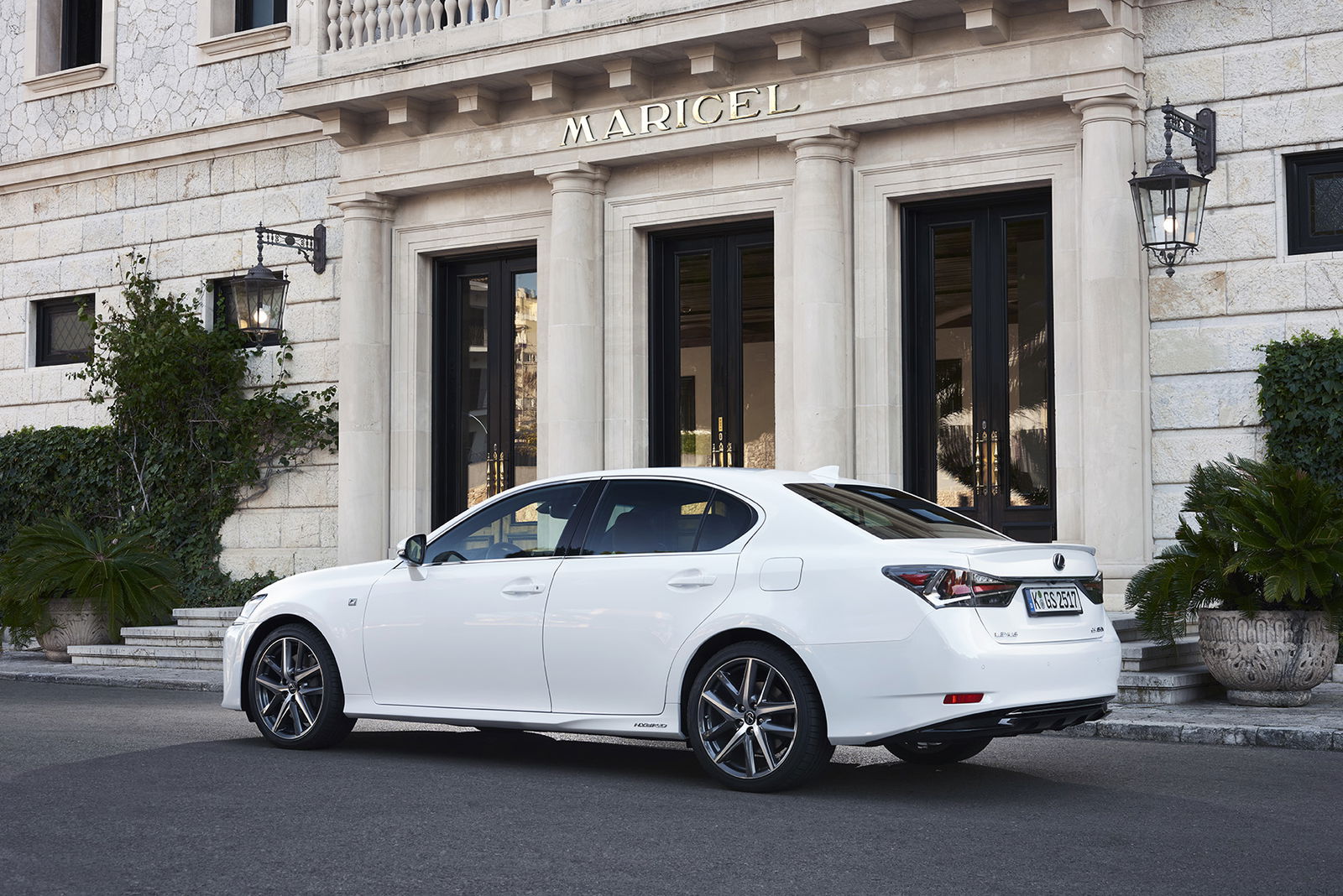
It’s currently available as two models: 300h and 450h. Both are hybrids, however the latter is intended to provide a bit of extra punch for those who like to forget about tree hugging from time to time, while the former is intended to be the economically friendly waft-mobile you’d expect this car to be. As such the 300h is expected to make up around 95 per cent of GS sales.
And honestly, the 95 per cent have it right. In 300h form, the GS makes a hell of a lot more sense. It has a 175bhp 2.5-litre petrol engine and a 141bhp electric motor that combine to make 220bhp, and thanks to that clever Atkinson cycle it’ll deliver a decent 64mpg. It also helps that you literally cannot hoon this thing; planting your foot to the floor results in a most leisurely building of speed, but it just adds to the air of sophistication this car imbues. Where Lexus has the upper hand on its rivals in the wake of Dieselgate is its NOX emissions, which are way lower than even the best diesels can offer. For some people, that will be enough to sway towards the Japanese.
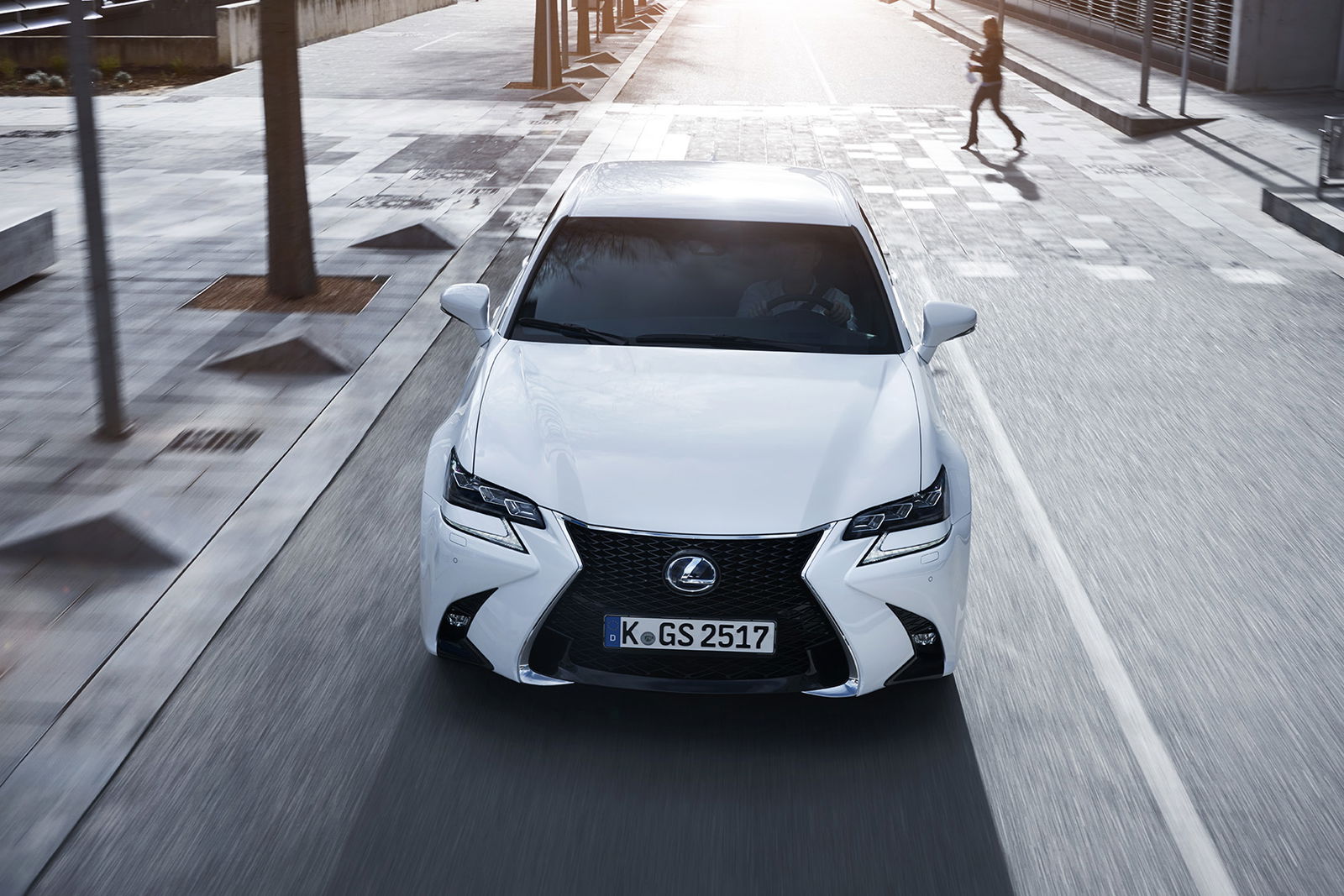
The 450h has the same hybrid gubbins underneath as the 300, this time coupled to a 3.5-litre petrol engine and putting out much more power. A combined 341bhp gives 0-62mph in under six seconds, but it’s not particularly pleasant - there’s a nice grumble at lower speeds but when you push on the noise is harsh, not helped by the linear power delivery of the CVT. Like in the RC 300h, you can manually ‘shift gears’ using paddles, but again, it feels weird and at odds with the car’s purpose.
So we’re going to have to go against type here and say get the less powerful one, because it really is a pleasure to cruise about in. At lower speeds the 300h is quiet and rides smoothly, while at higher speeds there’s perhaps a little more road noise than you’d get from a German equivalent, though nothing unbearable. Another area the Lexus must concede to the Europeans is in the way the engines feel as you accelerate; the delivery is smooth but the 3.5-litre feels a little coarse and unrefined.
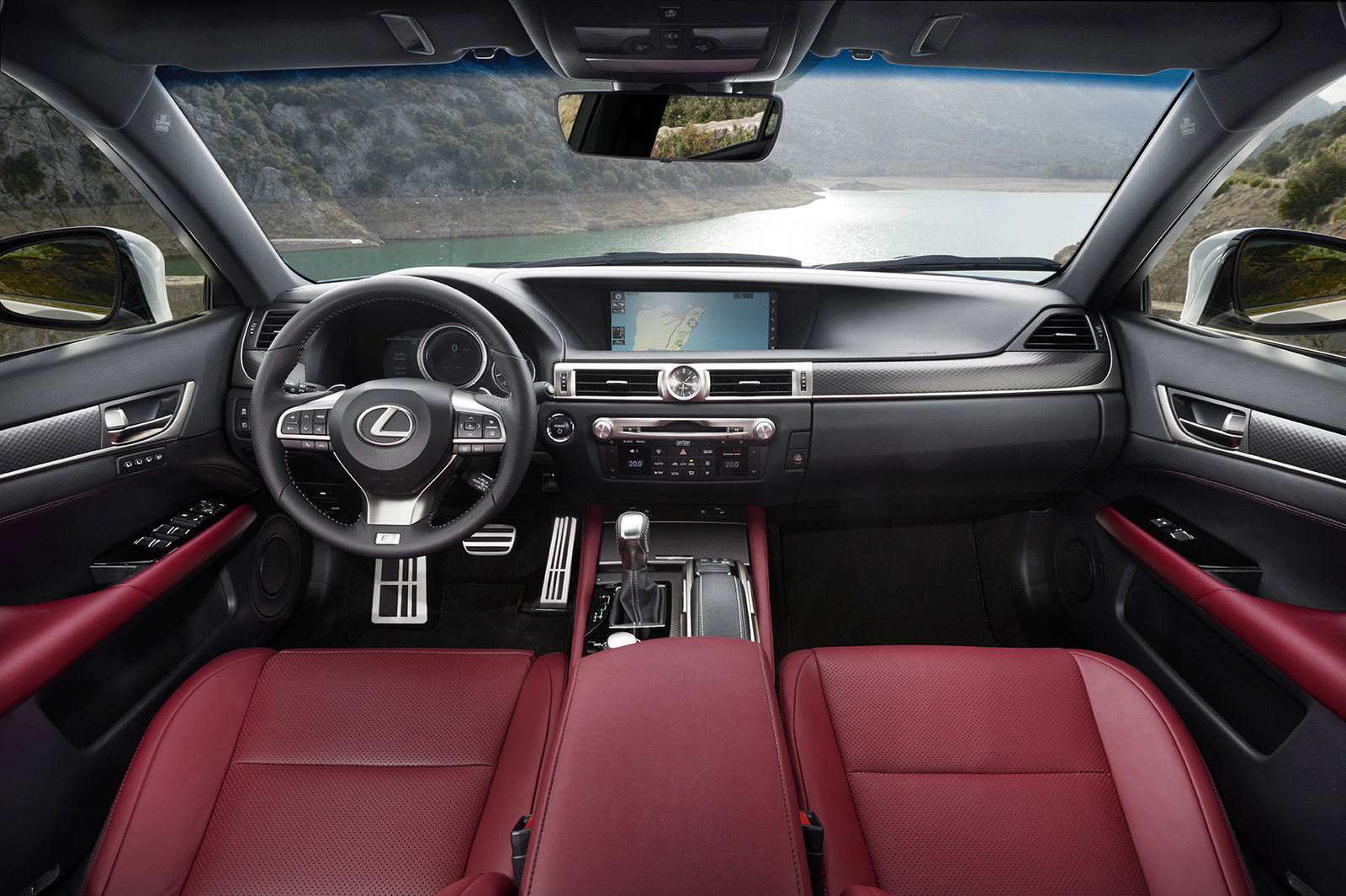
In premium cars such as this, the interior is hugely important, and it’s here that the Lexus does not disappoint. The massive 12.3-inch screen is set into a wide sweeping leather dashboard that makes the car feel utterly huge. The centre console is perhaps lacking inspiration, but the analogue clock set into the dash is a classy touch.
The seats are sublime, feeling like what might happen if an armchair manufacturer attempted to make a bucket seat. There’s the decent lateral support that’s so often missing in these luxury barges, but with the sort of comfort that’ll allow you to spend hours behind the wheel without getting a numb bum.
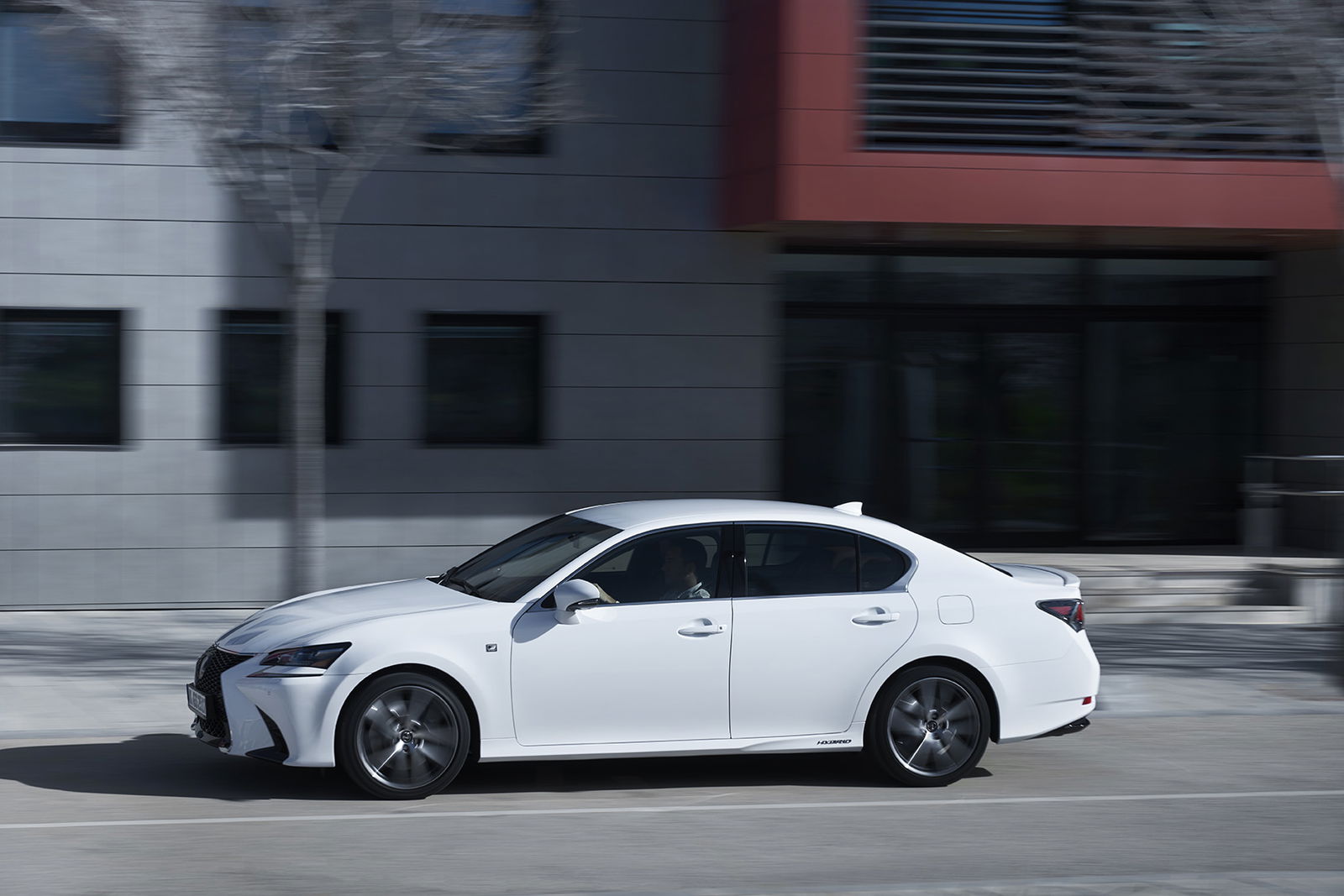
Unlike the striking RC coupe, the GS has a tougher time of making a visual splash. Buyers in this market are typically looking for something more reserved and professional looking, however the GS manages to tread the line between quirky and classy well. It has its duller angles, but the nose is far prettier and more interesting than the front ends of any of its rivals.
If you’re buying purely with your head, the Lexus still isn’t quite up there with the German manufacturers - unless emissions are a big deal to you - but this effort feels like it’s bridging the gap. The styling’s unique, the interior’s luxurious, and the driving experience is smooth and calming - if you just want to be different you won’t feel like you’ve made a huge sacrifice to do so. A slightly more refined petrol engine is all that’s needed now. Well, until the 461bhp, V8-powered GS F arrives… now we’re talking!






Comments
Waiting on Lexus for the new GS F. Will you guys review that one too?
tweet tweet
“it has a 175bhp 2.5-litre petrol engine and a 141bhp electric motor that combine to make 220bhp”
What?!
Paraphrasing Frank Sinatra: “You buy a German car when you want to be somebody. You buy a Leksus when you are somebody.”
Agree?